On 10 December 2018, a full 70 years after the signing of the Universal Declaration of Human Rights, the mdw – University of Music and Performing Arts Vienna hosted a panel discussion on the state of human rights in the current political situation. Migration, the right to work, minority rights, the right to participate in the arts and culture, the right to political co-determination, and not least the rights to equality and freedom were the topics that were discussed by author and director Marlene Streeruwitz, Nuremberg International Human Rights Film Festival director Andrea Kuhn, singer and mdw alumna Golnar Shahyar, and the painter and human rights policy expert Beate Winkler under the moderation of Corinna Milborn.
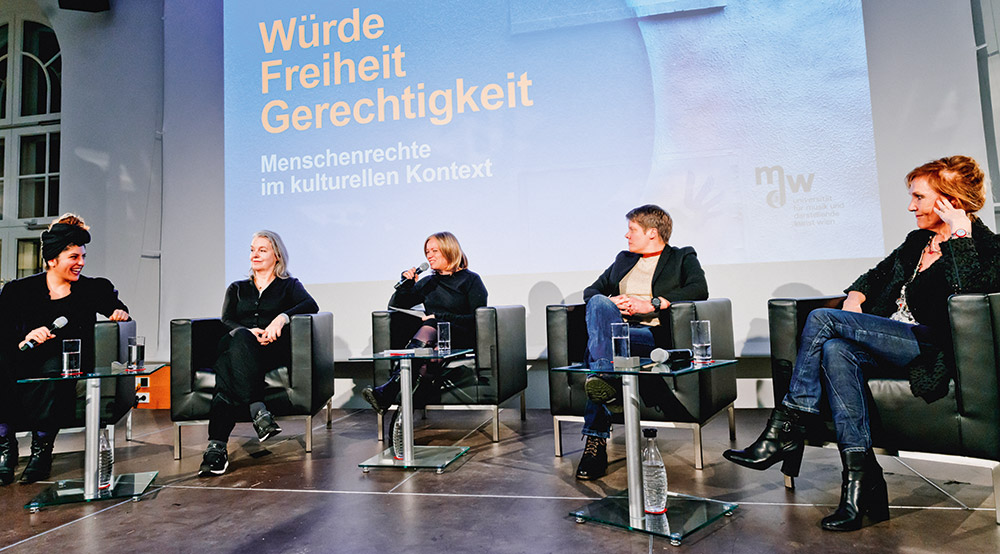
The panel members as well as the audience concurred that human rights are in danger across the board and worldwide—an impression also reflected in the assessment of the European Human Rights Agency. Beate Winkler, that agency’s first woman director, noted that populism, digitisation, and the radical economisation of all areas of life have catapulted our society into a deep crisis of identity. Rage directed at elites and the rise of totalitarian systems, she contends, are consequences of this disconcertment. The Declaration of Human Rights was originally put forth in reaction to the traumas of the Second World War, and memories of that war are growing increasingly faint. But now more than ever, human beings’ “endowment” with certain rights, as Marlene Streeruwitz put it, needs to be taken at its word—for proclamations of the dignity and freedom of every individual human being must not be allowed to remain mere lip service. “Now it’s starting to hurt,” agreed film scholar Andrea Kuhn. Documentaries, she said, should not only awaken emotions and show us time and time again how refugees are human, too, but also go on to make a theme of our shared culpability.
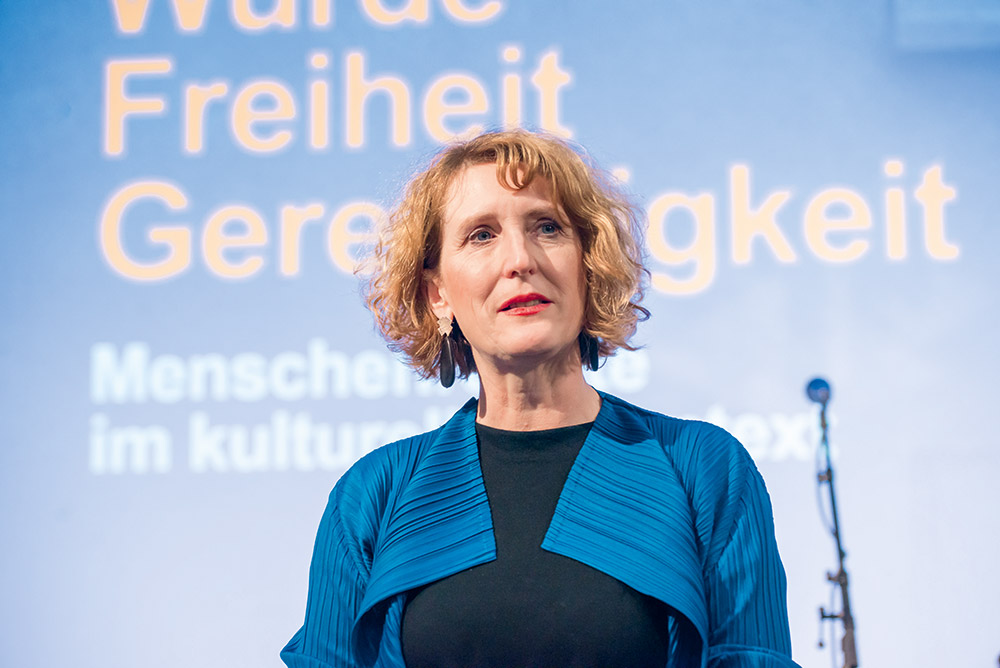
The Iranian-Canadian musician Golnar Shahyar, who set the mood quite wonderfully for this discussion’s theme with her performance of two songs, emphasised how democracy has to be learned anew, realised, and fought for day after day—not just in Iran, but also in Austria. In this, human rights embody the objective of lived democracy in the interest of the common good. Justice can only be realised if the central values of Europe’s modern era—on which human rights like dignity, freedom, equality, and solidarity are based—actually are recognised as being fundamental as well as something to which all of a society’s protagonists must contribute actively.
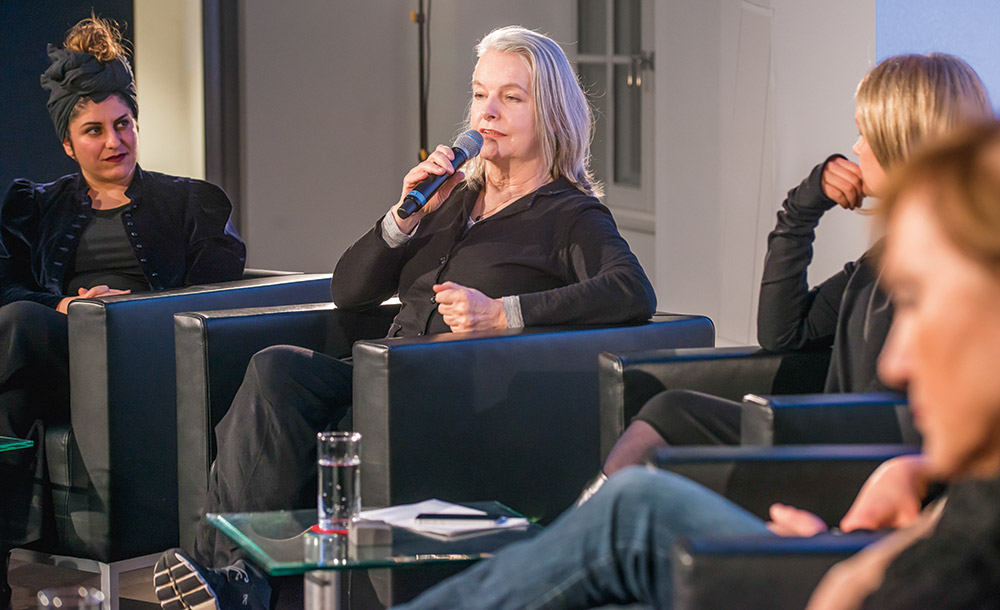
Arts universities, as elite institutions, likewise can and must make their contribution. And on this, Rector Ulrike Sych added the mdw’s standpoint to the discussion: the University, she said, aims to become a best practice example with respect to human rights. And its ideal of quality relates to more than just teaching, artistic training, and its degrees—for excellence, she said, is more than just excellent violin playing. Excellence stands for an attitude that is non-negotiable, one that upholds human dignity and human rights. Graduates are to go out into the world with this attitude. The mdw does justice to this obligation toward human rights by making the freedom of art, science, and teaching its guiding principle. For increasingly, it is falling to artists to act as ambassadors of human rights.
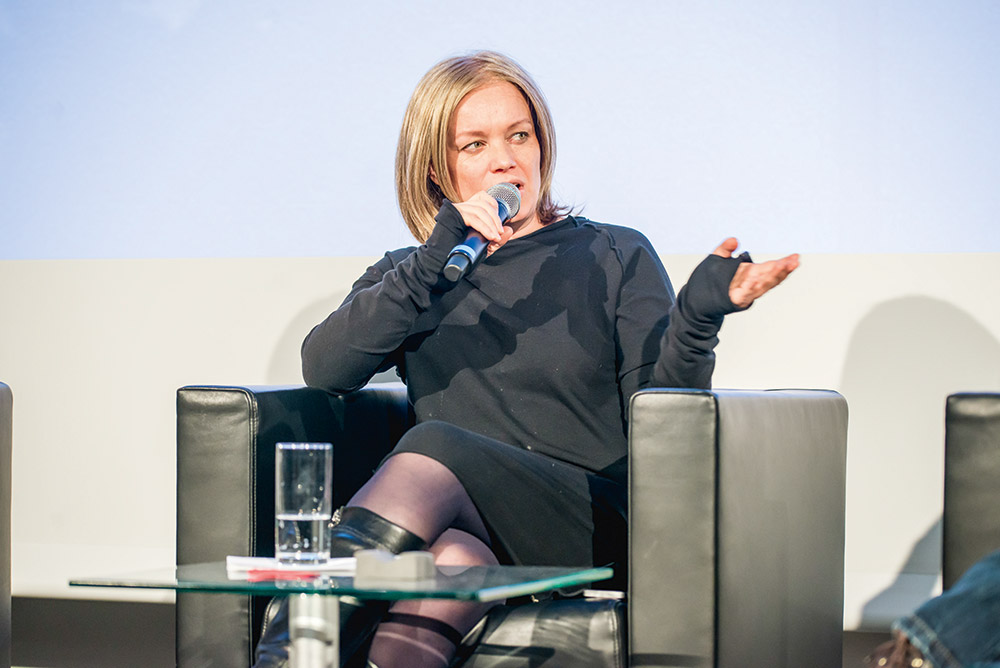
It was before this backdrop that mdw alumna Golnar Shahyar and Beate Winkler then demanded that there be more free spaces to discuss and to fail, spaces in which to practice and—particularly within university structures—actually live democracy. Andrea Kuhn criticised how success in the arts and in culture is increasingly being measured only in terms of numbers, with horrific consequences for artistic freedom. Beate Winkler, as well, characterised art as an underestimated resource, since any and all artistic training nourishes the ability to give oneself over to things that cannot be controlled and also welcome strangers as “ambassadors of change”. Golnar Shahyar took up this line of thought by stressing how important it is to ensure that art doesn’t ultimately end up serving hierarchical systems. To which Marlene Streeruwitz added that art consists primarily in purposeless engagement. And an elite institution such as the mdw, Streeruwitz continued, has the responsibility to teach art democratically and under the assumption of the equality of all people, to allow codetermination, and to refrain from orienting itself exclusively according toward market logics: “Abandoning modernism is not an option—which is to say that we will not be able to return to tonality and break out in simple melodies that connect all of us with one another.”
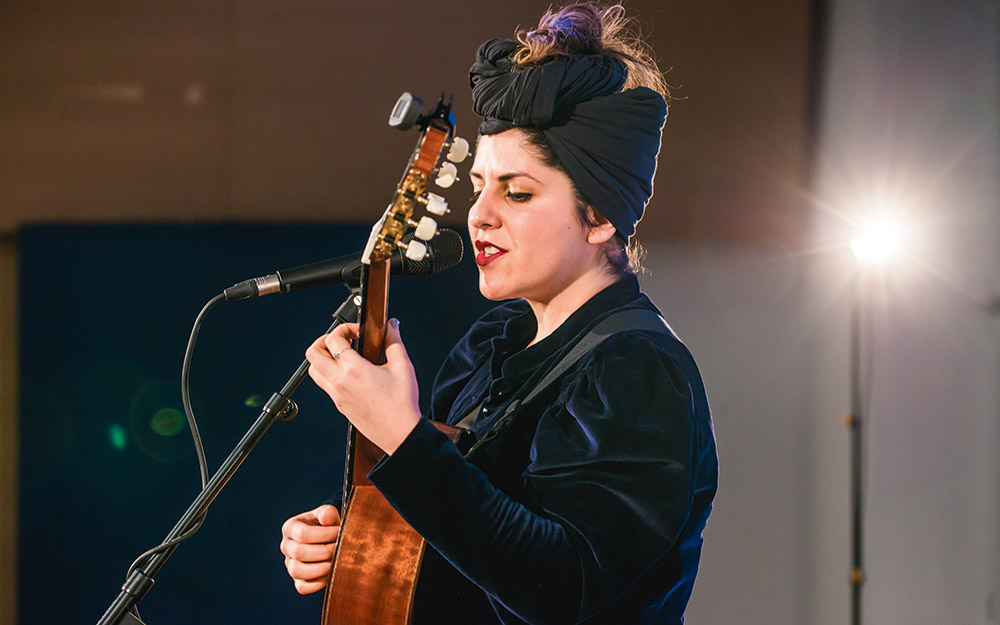
With regard to Western nation-states’ eroded democracies, the French philosopher Étienne Balibar spoke of égaliberté (the fusion of equality and liberty) as the “central political motor of the modern era”: the “conditions of possibility” for equality are also those for freedom—which entails that those who suppress freedom also suppress equality1. And transferred to institutional criticism, said Andrea Kuhn, this also means that the economic underpinnings of access to knowledge, culture, and art always have to be considered, as well. After all, a condition of possibility for both equality and freedom consists in creating an awareness of the right to rights (Hannah Arendt) in every individual human being, as well as in the fair redistribution of wealth and in everybody’s possession of equal access to a society’s resources—for which reason solidarity, said Kuhn, must also entail one’s own willingness to back down and give way.
- You can watch the discussion at the mdw Mediathek: mediathek.mdw.ac.at
- Read the intervew with Andrea Kuhn, panellist in the discussion
1 Étienne Balibar: Gleichfreiheit. Berlin: Suhrkamp, 2012.

